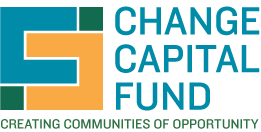New Settlement Apartments (NSA) has been collaborating with neighborhood residents to transform the Mount Eden neighborhood in the Bronx over a period of 30 years. A visitor walking through the neighborhood will see 20 apartment buildings renovated by NSA, along with a neighborhood park that was physically transformed through their advocacy. NSA’s dazzling community center on Jerome Avenue offers (in normal times) an Olympic sized pool, dance classes, meeting space and a host of other activities as well as K-12 school that has dramatically improved educational outcomes for thousands of children. Still, a visitor’s eyes can only see a small part of the story: 1198 households, 30% of whom were formerly homeless, are safely and affordably housed; teens find their bearing through counseling and YouthBuild programs; high school kids discover that college is a possibility; and graduates move into the middle class. The neighborhood has seen its mostly Latinex, African American and African population increase by more than 4,500 people over the past three decades and it remains a landing place for immigrant families (40% of residents are foreign born). NSA’s community school has become a city model and the ‘Right to Counsel’ law, spearheaded by NSA’s tenant organizing arm CASA, and recently expanded by the NYC Council, is preventing evictions and homelessness citywide.
When NSA staff closed their programs in March 2020, 900 children lost their after-school programs; 150 unemployed young adults lost access to hands-on training and workforce readiness programs, and some 1,200 young people in or hoping to go to college were missing their one-on-one counseling, college visits and workshops. But, as best it could, NSA adapted its programming.
The Young Adult Opportunity Initiative (workforce development) and College Access Center staff reached out to offer emotional support to their participants and college-bound/-attending youth to keep them engaged and focused on their futures. At the same time that front-line workers were scrambling to move program activities and resources online, they became de-facto case managers. NSA raised funds for emergency grants to help students secure laptops and families to meet emergency needs. Both programs are now operating in a hybrid format.
NSA’s organizing division, CASA, dramatically shifted their work in the face of potential mass evictions. During the first four months of the pandemic, they helped coordinate city- and state-wide campaigns and, as part of the Housing Justice For All (HJ4A) and Right to Counsel (RTC) coalitions they helped win statewide rent relief and multiple extensions to the eviction moratorium.
NSA’s Parent Action Committee (PAC) turned its focus to the digital divide and holding the Department of Education accountable to meeting the needs of the most disadvantaged families, including English language learners, students with disabilities, families in temporary housing, and families with limited technology skills. They held several digital townhalls with parents, students and both elected officials and Department of Education representatives.
CCF support helped NSA strengthen key components of its infrastructure during the last years of its founding director’s tenure. A new director has found an organization with more cohesive goals and stronger communications, development staff and internal data systems.


